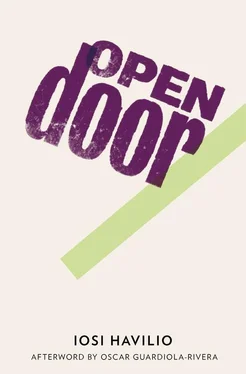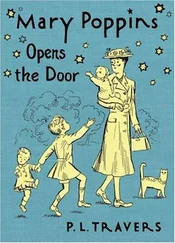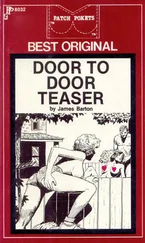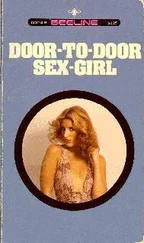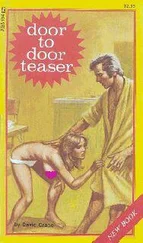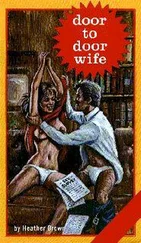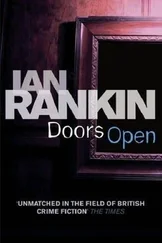Iosi Havilio - Open Door
Здесь есть возможность читать онлайн «Iosi Havilio - Open Door» весь текст электронной книги совершенно бесплатно (целиком полную версию без сокращений). В некоторых случаях можно слушать аудио, скачать через торрент в формате fb2 и присутствует краткое содержание. Год выпуска: 2013, Издательство: And Other Stories, Жанр: Современная проза, на английском языке. Описание произведения, (предисловие) а так же отзывы посетителей доступны на портале библиотеки ЛибКат.
- Название:Open Door
- Автор:
- Издательство:And Other Stories
- Жанр:
- Год:2013
- ISBN:нет данных
- Рейтинг книги:4 / 5. Голосов: 1
-
Избранное:Добавить в избранное
- Отзывы:
-
Ваша оценка:
- 80
- 1
- 2
- 3
- 4
- 5
Open Door: краткое содержание, описание и аннотация
Предлагаем к чтению аннотацию, описание, краткое содержание или предисловие (зависит от того, что написал сам автор книги «Open Door»). Если вы не нашли необходимую информацию о книге — напишите в комментариях, мы постараемся отыскать её.
Iosi Havilio
Open Door
Open Door — читать онлайн бесплатно полную книгу (весь текст) целиком
Ниже представлен текст книги, разбитый по страницам. Система сохранения места последней прочитанной страницы, позволяет с удобством читать онлайн бесплатно книгу «Open Door», без необходимости каждый раз заново искать на чём Вы остановились. Поставьте закладку, и сможете в любой момент перейти на страницу, на которой закончили чтение.
Интервал:
Закладка:
The following day, too early, I was woken by Beba’s legs, criss-crossed with a thousand tiny veins, sweeping back and forth in front of me behind a broom. It wasn’t even seven in the morning. The television was on a channel showing the weather forecast. The storm wasn’t going to pass until Saturday.
‘I couldn’t get a wink of sleep all night, this is all such a mess,’ says Beba with a mug of coffee in her hand. I could barely look her in the eye, something about her was starting to repel me.
Beba kept talking for some time, it was her speciality. I finished my coffee without paying any attention, spent two minutes in the bathroom, dressed in the same clothes as yesterday and left for the surgery.
What exactly could have happened? I tried to reconstruct the events since Sunday on a piece of paper: the mix-up with Aída, the suicide on the bridge, the faint, the day and a half in hospital, my arrival at the flat, the appearance of Beba, the policemen. I went over the same thing a thousand times, trying to put my thoughts in order, to introduce some logic to the situation, but I didn’t get anywhere. Was it possible that I had witnessed Aída committing suicide without realising it? Yes, it was possible, and at the same time both absurd and in bad taste. A hundred times I replayed the blurred yet indelible images of the negotiations between the firemen and that nameless body, which nobody could even confirm as male or female. I even found myself asking that jaded question, which sounds so stupid in other people’s mouths: Why did she do it? Did she have a reason? Of course she did, everybody does. But as for proper reasons, what you’d think of as reasons, private, weighty motives, none occurred to me. She wasn’t a happy girl, but that doesn’t mean anything. Aída must be somewhere, playing hide and seek, sooner or later she’d appear, and all this delirium would become a dark and amusing anecdote. Things would sort themselves out.
At closing time, I repeated the usual routine: I switched off the surgery lights, lowered the blind, put the chain on the door, but I didn’t leave. I didn’t want to see Beba again, the very idea tortured me. I undressed and lay down on the consulting table. It was a bit narrower and a good ten centimetres shorter than me, but still quite comfortable. I fell asleep immediately.
I had a strange dream that lasted all night. A dream full of animals.
SEVEN
Saturday came round again and I went back to Open Door. This time I took the train to Luján. I phoned Jaime from the station. He took a while to answer. I was in the stable, he said and then told me that the other Jaime had been lying down all week but that he didn’t look too bad. I’m in Luján, I told him. Jaime fell silent for a few seconds, then asked whether the café was open so I could wait for him there. I’ll be out front, I said. I’ll be with you in twenty minutes, he replied, with an enthusiasm that I’d never suspected he could summon, adding: It’s a beautiful day. Jaime hung up and I couldn’t prevent my mind from straying to that vivid image I’d had in my head all week of the two Jaimes frolicking in the sun, caressing each other’s backs, snorting, each merging into the faded eyes of the other.
At the station’s exit, I was approached by a bald man with heavy dark circles under his eyes, as if they’d been painted on with shoe polish. It was hard to tell whether he was a taxi driver or about to proposition me. Can I take you into the centre, he asked, confident that he would be taking me into the centre. Someone’s picking me up, I answered, feeling protected by my reply. I crossed the avenue and felt a bit disorientated by the two-way street split in the middle by a small, elongated square, which broke off abruptly at the corners.
There was a nameless ice cream shop on the corner, makeshift, just opened for the summer. It had very few flavours on offer, most of them were empty and covered with paper. I asked for a cone of dark chocolate and lemon mousse. The chocolate wasn’t bad but the lemon, too sticky to be mousse, had lumps of ice in it that bulked out the cone. I sat under a small tree which, when I leant back against the trunk, pushed back at me with hidden thorns. It was a palo borracho , a silk floss tree, and it was sharp. From here I could see a black iron bridge at the end of the station, connecting the two platforms, four or five metres above the tracks, useless for committing suicide. If Aída, or whoever it was, had chosen this one instead of the other, she would only have managed to break a leg, or both legs, or a hip.
On the way to the house, we stopped at the entrance to the loony bin, as Jaime calls it, to let them know that he wouldn’t be tending to the nursery that afternoon. He told the guard at the gate, sticking his head through the window without getting out of the car. The man nodded from his little hut and we drove on.
The dirt track was still muddy from the recent rain and the truck skidded from side to side, like a drunkard. Jaime was concentrating hard, gripping the wheel with both hands, his face practically pressed up against the windscreen. It was good fun.
We arrived at the gate and I moved to open it before Jaime did.
‘I’ll get it,’ I said and he smiled. When I unhooked the latch from the post, I had a strange feeling, a kind of déjà vu.
Jaime made some maté tea and we exchanged a few words about the weather, the countryside and the city. Then we went to see the animal.
The other Jaime was lying down at the back of the house, in the open air. We approached slowly, respectfully. He looked weak, exhausted, and had deteriorated somewhat since last Saturday.
‘I took him outside to see if the fresh air would do him any good,’ I heard Jaime say behind me, in a resigned voice.
We led him carefully by the reins back into the stable.
‘He’s going to die tonight,’ said the other Jaime. His eyes were shrunken, very red. I held out my hand to him and he didn’t understand. And an impulse I can’t explain made me embrace him. A little out-of-time, he reciprocated and for a while he patted my back with his big tanned mitts, as if he were stroking the horse’s flank. I don’t know who was consoling whom. My nose was pressed up against his neck and I could smell an unfamiliar odour, sour, stale and exciting. I grasped his arms and gently pushed him away a few centimetres: he was crying. I took his face between my hands and kissed him very close to his lips. Jaime closed his eyes.
I thought about how unusual the situation was, about those hands touching me, those arms squeezing me tightly, and about any number of other things. I thought that if I wanted to I could fall in love with Jaime. I thought about how he must be thinking about something too. About me? The horse? The burial? It will be a difficult burial, he’ll have to do a lot of digging, he’ll need help. Maybe the best thing is to have the horse put down and cremate him afterwards, keeping the ashes in a large urn. Wasting no time on agonies or ceremonies.
I moved away from him a little, I grabbed his hand, and with the other I gestured for him to follow me. I paused by a mound of straw a few metres away. Jaime stopped crying. I undid three or four buttons on my blouse. Jaime dried his tears with the cuff of his shirt, embarrassed and clumsy. His face changed suddenly, he almost laughed. I thought he was what you would call a decent guy. Jaime looked me in the eye, his lips trembled and he stretched out his arm without touching me.
‘Let’s go, it’s getting cold,’ he said and I didn’t know what to do, feeling ridiculous with half a tit on show.
On the way back to the house, in a low, hoarse voice, Jaime spoke again:
‘You’d be best spending the night here, it’s very late for you to go back now.’ He spoke the way gauchos must speak, no beating round the bush. I nodded, it seemed like a good idea, I was tired and had nowhere to go. I was in no danger with Jaime.
Читать дальшеИнтервал:
Закладка:
Похожие книги на «Open Door»
Представляем Вашему вниманию похожие книги на «Open Door» списком для выбора. Мы отобрали схожую по названию и смыслу литературу в надежде предоставить читателям больше вариантов отыскать новые, интересные, ещё непрочитанные произведения.
Обсуждение, отзывы о книге «Open Door» и просто собственные мнения читателей. Оставьте ваши комментарии, напишите, что Вы думаете о произведении, его смысле или главных героях. Укажите что конкретно понравилось, а что нет, и почему Вы так считаете.
